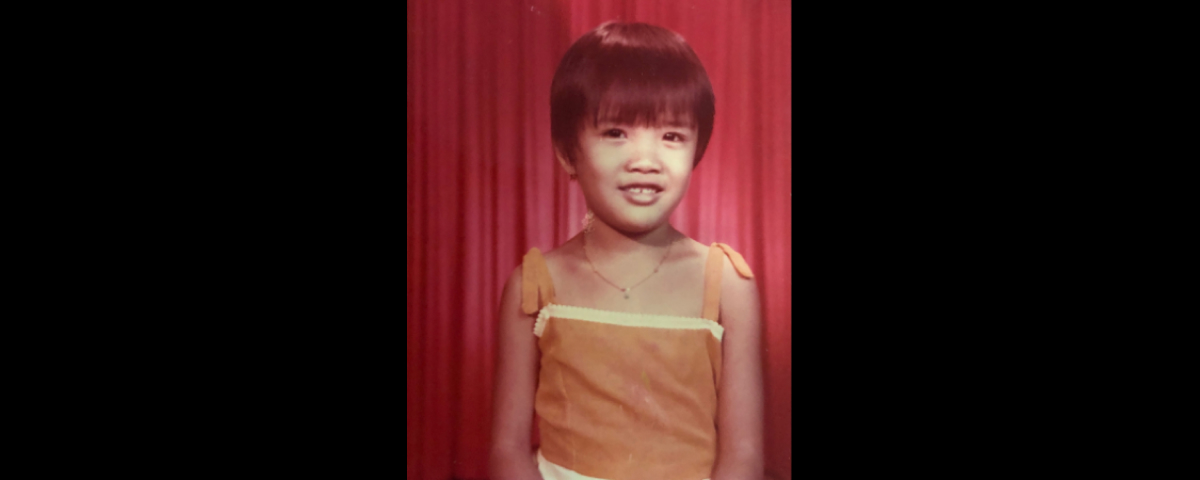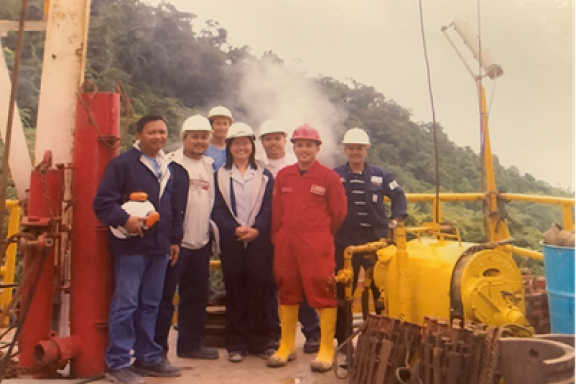23 JUN 2020
This year for International Women in Engineering Day (23 June 2020), we want to showcase the amazing journey our engineers have taken. We truly have a diverse bunch of women engineers in Contact who come from all walks of life. The international theme is “Shape the World,” so we asked our engineers some questions about what got them into their field in the first place.
What is the photo of?
This picture was taken on my 6th birthday. My mother took me to a photo studio to have this picture taken, which was not unusual during that time.

What inspired you to become an engineer?
Math and Sciences were the subjects that I loved and was good at in high school, and I thought it would be a dream if my subjects at University would all just be math and/or sciences. So, I was initially deciding between Medicine or Engineering.
However, my father kept discouraging me from Engineering because he thought that I would not succeed, not because he lacked confidence on my academic ability but because during the 1990s in the Philippines Engineering was male dominated and it was unusual for women to take up Engineering. I came from a very conservative family, and I studied at an all-female high school run by nuns. My father was afraid for my safety, and he thought I would be unemployed because the companies would prefer to hire a male over a female, which was the set-up in the brewery company that he was working for.
My father’s constant dissuasion of me taking Engineering actually helped me in deciding to take up the course. It became a challenge and an obsession to prove him wrong. I could already picture myself working in the same brewery that he was working for.
In the end, my father had to give in because I was able to acquire a full scholarship in an Engineering school for the whole 5 years of my studies. He did give a condition that I wasn’t allowed to take Mechanical Engineering (which was my first choice) because it had no female enrolees. As a compromise, I took Chemical Engineering, which had more than 1 other female enrolee.
I was lucky to not have experienced difficulty in looking for a job later. I started getting job offers a year before I graduated. I could have worked for the brewery company with my father, however, for my first job I chose instead the Reservoir Engineer role offered by a geothermal company. The company was located on another island, it was my very first time away from home. I have been a reservoir engineer for my whole career - 25 years now.
What surprises you most about your job?
My first impression, working as an Engineer for the first time back in 1995 in the Philippines, was that the company was not prepared for a female engineer. I was the only female engineer on site at that time, and my Boss was like a father figure who was very protective of me, stricter than my father.
Note that during this time, the company was on a drilling campaign for commissioning of 4 additional power stations for a further 700MW development. The geothermal field was situated in a remote mountainous area, which could have been infiltrated with rebels at that time. Initially, I was not given the opportunity to do the work that involved me staying overnight on the field, like completion tests of wells or exploration work. In spite of good intentions to protect me, which I was thankful for, I hated this restriction. It made me feel incomplete, and felt that I was missing the opportunity to get actual training. This did not stop me from studying the work by reading existing reports, asking people, doing calculations & evaluations using raw data gathered from the field from past and even the new data.
By the time I was given the chance to finally do it, I was so ready. However, I was always required to have another male engineer companion on site. This was fine at first, but later I wanted to be on my own just like the others. The opportunity came one day, when five of our drilling rigs had completed well drilling at the same time, which meant five reservoir engineers were needed to do the job. There were five of us reservoir engineers at that time, so my boss had to let me work alone on one of the rigs. This circumstance was the start of many other countless night jobs for me without a chaperone, and I loved every single one of them. This was the time when I started to feel like a real engineer as I was doing the same work as the others and treated in the same way as them.
There were other challenges at that time such as the lack of basic amenities, like a toilet for women on most of the sites. I had to bravely enter a man’s toilet, which never failed to surprise the occupant/s and to whom I had to explain each time why I was there.
Back in the 1990s when we were doing field work, we had to stay on-site, however, there was no provision of a separate accommodation for me and only one sleeper van was provided. I would always volunteer to sleep in the service car and give the sleeper van to my crew. The lack of amenities at that time was not intentional, considering that I was the first female engineer on site. But I did not complain nor did I mention it as I feared that doing so might prompt management to stop me from doing field work or worse, might make them think that hiring me for the job was a mistake as it required a change in the existing set-up. To me, these were small sacrifices to pay in exchange for doing the things that I love.
I did not experience any form of harassment in the work space. People were very supportive, would treat me as one of the boys, and would even volunteer to leave the toilets so I could use it alone. Over-all, I considered myself privileged to be considered for the role in a time when engineering was so male dominated.
What are you most proud of having achieved in your role?
Reservoir engineering as a role has evolved over the years not just in terms of who can be one but also of how far it can cover.
One thing I like about the role is that I am always learning and that there is always an opportunity to create something new, may it be in the form of methodology or a theory or process or calculation, which fuels ones creative juices endlessly.
From my past experience, in my own little way, I had proven that anyone can do this job as long as one has the passion to learn without boundaries.
In the present time, I have evolved the role further to not just look after the reservoir and wells, but also to branch out to the above ground asset and create a link with the below ground information in order to attain full optimisation and efficiency.

By Christine Siega
Senior Fuel Optimisation Engineer
For independent complaint or pricing advice, click here. UDL & Powerswitch can help.
To read our Residential Consumer Care policy on how we'll keep you safe and connected, click here.